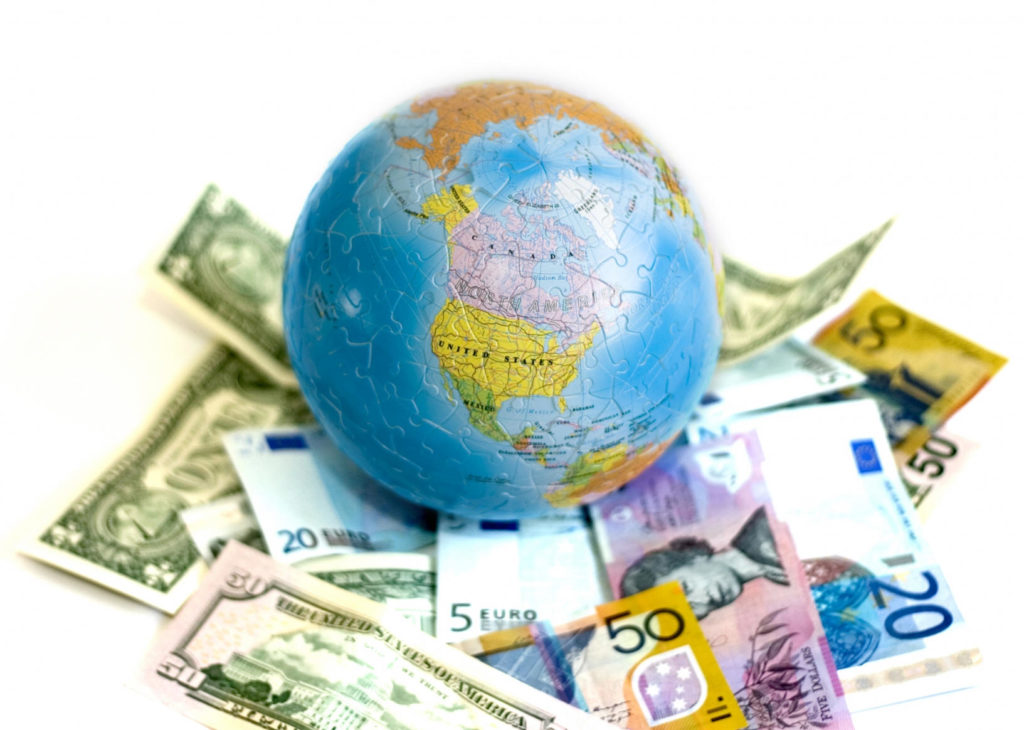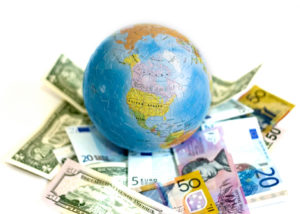Does Economics Determine Human History?
Karl Marx said: “The history of all hitherto existing society is the history of class struggles.” Do you agree? Is history a record of economic warfare?
Marx, Engels and Lenin delineated societal classes economically, by separating the oppressor and the oppressed, the bourgeoisie and the proletariat, in purely financial terms:
By bourgeoisie is meant the class of modern capitalists, owners of the means of social production and employers of wage labor. By proletariat, the class of modern wage laborers who, having no means of production of their own, are reduced to selling their labor power in order to live. – Friedrich Engels
Freedom in capitalist society always remains about the same as it was in ancient Greek republics: Freedom for slave owners. – Vladimir Lenin
Freeman and slave, patrician and plebeian, lord and serf, guildmaster and journeyman, in a word, oppressor and oppressed, stood in constant opposition to one another, carried on an uninterrupted, now hidden, now open fight, that each time ended, either in the revolutionary reconstitution of society at large, or in the common ruin of the contending classes. – Karl Marx

Karl Marx
Marxists define history as the ongoing battle between different social classes, a constant fight between the powerful groups that control wealth and resources and the powerless groups that struggle to survive under their economic yoke. The world today, with its enormous and unprecedented disparities in wealth and poverty, could serve as a model of that theory.
In Marxist terms, then, economics becomes the main determinant of history, because Marxist theories of history completely negate the spiritual aspects of humanity, saying that all people act primarily out of economic self-interest, and religion only further oppresses the masses. Communism attempted to transform that philosophy of history into a classless and irreligious society, but in most cases that attempt has failed on the world stage.
The Baha’i teachings definitely recognize society’s classes, and condemn the economic and class prejudice associated with them:
It is racial, patriotic, religious and class prejudice, that has been the cause of the destruction of Humanity. – Abdu’l-Baha, Abdu’l-Baha in London, p. 28.
World order can be founded only on an unshakeable consciousness of the oneness of mankind, a spiritual truth which all the human sciences confirm. Anthropology, physiology, psychology, recognize only one human species, albeit infinitely varied in the secondary aspects of life. Recognition of this truth requires abandonment of prejudice—prejudice of every kind—race, class, colour, creed, nation, sex, degree of material civilization, everything which enables people to consider themselves superior to others. – The Universal House of Justice, The Promise of World Peace, p. 4.
But the Baha’i teachings also warn humanity not to create “false gods” from some of the most destructive theories of history such as nationalism, racism and communism:
God Himself has indeed been dethroned from the hearts of men, and an idolatrous world passionately and clamorously hails and worships the false gods which its own idle fancies have fatuously created, and its misguided hands so impiously exalted. The chief idols in the desecrated temple of mankind are none other than the triple gods of Nationalism, Racialism and Communism, at whose altars governments and peoples, whether democratic or totalitarian, at peace or at war, of the East or of the West, Christian or Islamic, are, in various forms and in different degrees, now worshiping. Their high priests are the politicians and the worldly-wise, the so-called sages of the age; their sacrifice, the flesh and blood of the slaughtered multitudes; their incantations outworn shibboleths and insidious and irreverent formulas; their incense, the smoke of anguish that ascends from the lacerated hearts of the bereaved, the maimed, and the homeless. – Shoghi Effendi, The Promised Day is Come, p. 113.
From a Baha’i perspective, no historical theory of the progress of civilization that entirely leaves out the human spirit and its Creator can ever fully and accurately describe the past, the present or the future:
Whatever progress is made by man, he always needs the Power of the Holy Spirit, for the power of man is limited and the Divine Power is without limit. – Baha’u’llah, quoted by Abdu’l-Baha in Star of the West, Volume 2, p. 6.
So, now that we’ve gone through all six of the predominant theories of human history—the Cyclical Theory, the Linear Theory, the Great Man Theory, the People’s Theory, the Geographic Theory and the Marxist Theory—which one do you think fits reality? Which one best describes our species’ long path to contemporary civilization?
Before you decide which of these historical theories you like best, or if you like any of them, here’s a question for you. Let’s go back to Carlyle’s concept and give some additional thought to the Great Man question: of all the individuals who ever lived—the most influential people, man or woman, in our shared history—which ones had the most lasting and profound impact on humanity?
Got it? Now, which one has had the greatest impact on you personally? Ponder that one for a while, and we’ll come back to it.
So while Baha’is do believe that economics and geography both have a profound effect on human history, the Baha’i teachings say that the human spirit has had a much more important impact over time. In the next essay in this series, we’ll look at a new Baha’i theory of history that focuses on the importance of the soul and its Creator.


